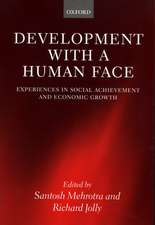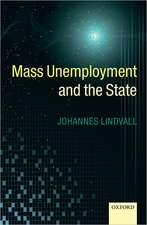The New Politics of the Welfare State
Editat de Paul Piersonen Limba Engleză Paperback – 5 apr 2001
| Toate formatele și edițiile | Preț | Express |
|---|---|---|
| Paperback (1) | 334.76 lei 32-37 zile | |
| OUP OXFORD – 5 apr 2001 | 334.76 lei 32-37 zile | |
| Hardback (1) | 330.73 lei 32-37 zile | |
| OUP OXFORD – 5 apr 2001 | 330.73 lei 32-37 zile |
Preț: 334.76 lei
Preț vechi: 403.71 lei
-17% Nou
Puncte Express: 502
Preț estimativ în valută:
64.06€ • 66.08$ • 53.46£
64.06€ • 66.08$ • 53.46£
Carte tipărită la comandă
Livrare economică 17-22 martie
Preluare comenzi: 021 569.72.76
Specificații
ISBN-13: 9780198297567
ISBN-10: 0198297564
Pagini: 530
Dimensiuni: 156 x 236 x 28 mm
Greutate: 0.81 kg
Editura: OUP OXFORD
Colecția OUP Oxford
Locul publicării:Oxford, United Kingdom
ISBN-10: 0198297564
Pagini: 530
Dimensiuni: 156 x 236 x 28 mm
Greutate: 0.81 kg
Editura: OUP OXFORD
Colecția OUP Oxford
Locul publicării:Oxford, United Kingdom
Recenzii
It is hard to exaggerate the theoretical contributions that The New Politics of the Welfare State makes. Numerous insights for future research agendas can be discerned in the volume ... an inspiring comparative book.
There is no doubt that The New Politics of the Welfare State, edited by Paul Pierson, is on the top of the reading list for students of comparative politics and welfare states. The authors clearly demonstrate the impacts of post-industrialization, aging populations, and globalization on welfare reforms under various political settings and different policy legacies. They also successfully define pressing research agendas for further investigations.
There is much in this collection to admire. The quality of the individual pieces is evident, and there are useful insights on issues like deindustrialisation, decommodification, and the adaptation of economic production to different institutional contexts ... a worthwhile acquisition for a library.
There is no doubt that The New Politics of the Welfare State, edited by Paul Pierson, is on the top of the reading list for students of comparative politics and welfare states. The authors clearly demonstrate the impacts of post-industrialization, aging populations, and globalization on welfare reforms under various political settings and different policy legacies. They also successfully define pressing research agendas for further investigations.
There is much in this collection to admire. The quality of the individual pieces is evident, and there are useful insights on issues like deindustrialisation, decommodification, and the adaptation of economic production to different institutional contexts ... a worthwhile acquisition for a library.

















